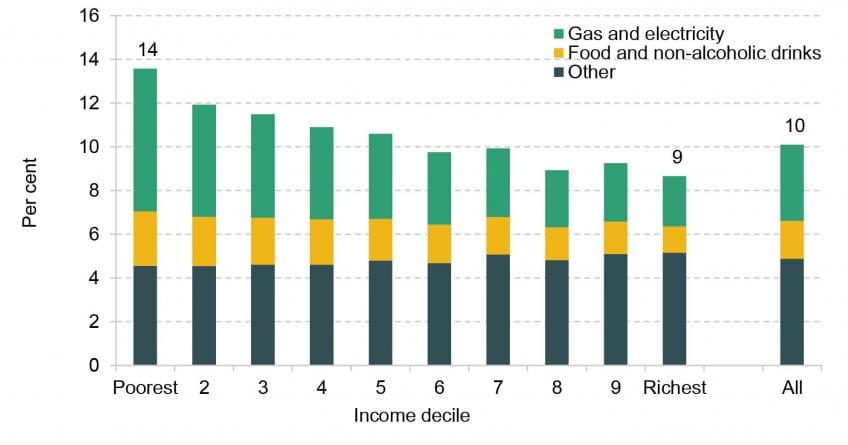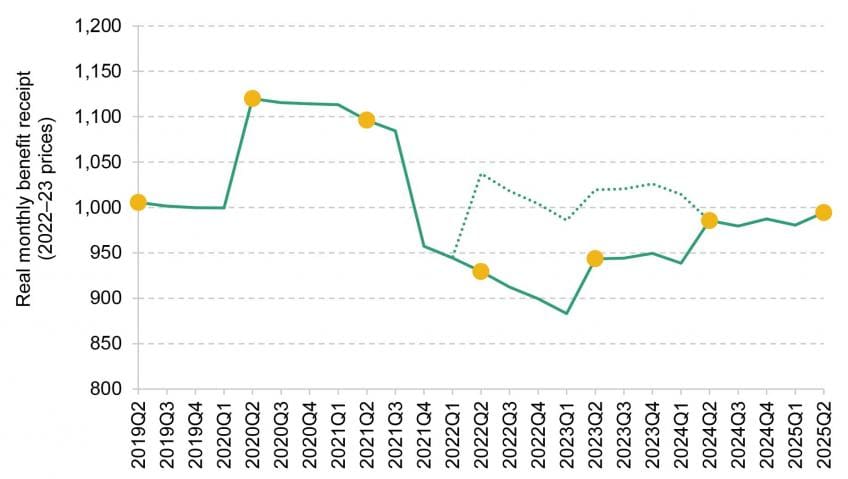Brianna Ghey’s murder, allegedly at the hands of two other young people, has shocked many and left trans, and wider LGBTQ+ communities, scared and angry. Two teenagers, both aged 15, allegedly murdered her on Saturday 11 February in Cheshire. The Crown Prosecution Service (CPS) has charged them both with murder and they’ll stand trial in July.
Brianna’s friends have been amplifying the fact that Brianna was a trans girl. However, initially police said they had no evidence it was a hate crime – to the concern of many – but they then changed this to say they were exploring all lines of inquiry. Friends of Brianna have also alleged that bullies targeted her for years prior to her murder, because she was trans. This hatred is endemic in wider society.
In recent years, the corporate media and government have helped whip-up a baseless storm around transgender people. Now, even in the wake of Brianna’s murder some outlets have continued to publish anti-trans content in line with a consistent agenda. Moreover, other media organisations suddenly seem opportunistically concerned about trans rights – after doing everything in their power to feed the anti-trans frenzy.
Corporate media: continuing transphobic agendas
In recent years, much of the corporate media has been stoking the moral panic around trans people. Dr Gina Gwenffrewi from the University of Edinburgh noted in a study that:
The explosion in the number of stories about trans issues since the late 2010s, published by a UK legacy media largely devoid of trans voices and related specialist knowledge, has seen coverage deemed “aggressive and damaging” against transgender people. Such trans testimonies, registering their distress at the negativity of the coverage by the UK legacy media, are supported by the findings of a number of international bodies such as the Council of Europe (2021) and ILGA Europe (2021) which claim the UK’s legacy media has been contributing to the demonization of the country’s transgender community.
The murder of Brianna has only emphasised this – with much of the corporate media either poorly reporting on her, or being openly transphobic. For example, at first, many outlets failed to say Brianna was trans – although some sites updated their articles later. The Trans Journalists Association guidance does state that media outlets shouldn’t “identify someone as trans unless it’s relevant”.
However, in this instance it was clear at the time that Brianna’s murder may well be related to her being trans. So, the corporate media should have said she was. Meanwhile, despite Brianna’s murder, outlets like the Telegraph continued to publish anti-trans content – running an article on 14 February targeting NHS treatment centre the Tavistock clinic. It, as well as the Independent, covered trans-exclusionist JK Rowling appearing on a podcast to defend her transphobic views – again, just days after Brianna was killed.
Moreover, some outlets showed no compassion or respect for Brianna at all.
The Times: deadnaming Brianna
As the Trans Safety Network tweeted, the Times changed its article to put Brianna’s deadname in. This is fundamentally wrong, hurtful, and disrespectful of Brianna. As the Trans Journalists Association noted around the demeaning and violent reporting of deadnames:
A trans person’s given or former name that they no longer use, also often referred to as a “given name” or “legal name.” There’s never a reason to publish someone’s deadname in a story.
Clearly, the Times knew this – as it then changed the article again, removing Brianna’s deadname. As one Twitter user summed up:
Even in a tragic, horrifying death, trans people don’t get afforded the dignity of being known as who they were
This was a choice by the Times, clearly aimed at devaluing Brianna’s life b/c she’s trans. This is the attitude & the hate these outlets want to stir. Utterly shameful.
The Times has been one of the most transphobic media outlets in the UK recently. As Gwenffrewi noted in terms of the outlet’s coverage of Stonewall (which was under attack for its support for trans people):
[Rupert] Murdoch media empire’s broadsheet Times / Sunday Times between 2020-2022 produced approximately 178 stories in which Stonewall was featured, with 47 of those being centred on how Stonewall’s actions – indeed, its existence – are damaging to UK society.
Meanwhile, other areas of the media showed breathtaking hypocrisy in their reporting on Brianna’s murder.
Tabloid hypocrisy and the Guardian
The Daily Mail and the Sun ran two articles each on the bullying other children subjected Brianna to. However, both outlets have previously promoted transphobic content. For example, the Sun ran an offensive headline about a trans couple’s marriage. It also published a grotesque frontpage back in 2017 about Drag Queen Story Time. The article discussed “men in women’s clothing… teaching kids as young as two” about LGBTQ+ issues”. Similarly, the Daily Mail has repeatedly published anti-trans content – from manipulated stories about trans health issues to defending transphobes. Therefore, these outlets suddenly showing concern over Brianna’s murder was opportunistic and disingenuous.
So, what of the Guardian? It has extensively reported on Brianna’s murder. However, it too has repeatedly published anti-trans content. For example, take the Guardian‘s stance on Stonewall. Gwenffrewi noted in the study that:
Between 2020 and 2022, and in contrast to the rest of the progressive legacy media, the Guardian has with increasing consistency begun to emulate the frame used by the Times / Sunday Times to portray the UK’s largest LGBT+ charity as a negative force in society. Without replicating the frequency of negative stories, it does maintain the negative framing and key themes of delegitimisation.
One example was a Guardian report on Stonewall featuring comment from transphobic writers Germaine Greer and Julie Bindel. As Gwenffrewi noted, the article failed to frame the two as:
trans-exclusionists referenced in the article, whose history of crude and delegitimising condemnations of trans identity goes unmentioned.
Instead, as Gwenffrewi wrote, the Guardian:
attributes aggressiveness to the marginalized minority and its advocates, against the depiction of calm and responsible good intentions for experienced and derogatory exponents of anti-trans activism.
Does the media shoulder the blame for trans hate?
So, it’s clear that there are transphobic agendas at play among much of the media. This then has real-world effects. For example, the day after the two teenagers allegedly murdered Brianna, neo-Nazi group Patriotic Alternative targeted a drag queen story time event at the Tate. So, as Gwenffrewi wrote:
this can be blamed on the elitist composition of the UK legacy media, and its ideological commitment to protecting the status quo. Through an absence of diversity and specialised knowledge, particularly in relation to the reporting on marginalised identities, the result is that those who shape the narrative about trans people are not trans themselves, but instead those who through their ignorance contribute to their marginalisation.
Yet why do the same media then offer-up sympathetic stories for Brianna?
These outlets are using Brianna’s murder to capitalise on, via clicks and advertising, the very moral panic they helped foment. It’s unfathomable given their previous coverage that they are concerned that Brianna may have been murdered because she was trans. Nor do these outlets have sympathy for her. It’s more likely that the corporate media are opportunistically using the public furore about trans people, exploiting Brianna’s horrific killing, and cynically squeezing every last drop of coverage they can – simply for revenue.
A mirror onto the state – but one that enables it, too
As if that weren’t horrifying enough, there’s more going on here. The media is also painting the anti-trans hate people showed towards Brianna during her life as somehow exceptional – when in reality, that very same media has helped dehumanise trans people to the extent that hate crime has rocketed. Moreover, media outlets’ feigning of care for Brianna ring hollow when juxtaposed with their own coverage of trans communities. The government and state are the drivers of policy for trans communities. However, it’s the media whose self-appointed task it is to sell the discrimination and hate to society at large, and normalise the dehumanisation. Put simply, the media has normalised transphobia to such a degree that their faux concern at Brianna’s killing is shameful and sickening. However much they would like to protest to the contrary, their reporting has brought us here.
The UK media is toxic for trans people, as it is for all of the communities the system marginalises. However, it merely serves as a mirror onto the state and those in power – also responsible for anti-trans hatred. Brianna’s horrific murder against this backdrop has shown that the corporate media has done, and continues to, play its part in the despicable transphobia that killed her.
Featured image via the The Mirror – YouTube screenshot
By Steve Topple
This post was originally published on Canary.





 (@martindvz)
(@martindvz)  BRISTOL LEADING AGAINST TRANSPHOBIA
BRISTOL LEADING AGAINST TRANSPHOBIA
 (@TransRightsBris)
(@TransRightsBris)  | NEW: Kemi Badenoch has said she admires Kate Forbes' decision to say she doesn't support gay marriage and that it's "sad" she's receiving backlash
| NEW: Kemi Badenoch has said she admires Kate Forbes' decision to say she doesn't support gay marriage and that it's "sad" she's receiving backlash happy weekend to all.
happy weekend to all.




 Dr Hannimal FCK PTN (@hisotalus)
Dr Hannimal FCK PTN (@hisotalus) 
 (@XRYouthBristol)
(@XRYouthBristol) 


 …
… (@absolute_INTJ)
(@absolute_INTJ)  (@XRebellionUK)
(@XRebellionUK)  (@RefugeeTogether)
(@RefugeeTogether)  (@DanielYorkLoh)
(@DanielYorkLoh) 
 ACTION ALERT
ACTION ALERT 


 Outraged that Shell and BP are taking us for fools and raking in profits of £32.2bn?
Outraged that Shell and BP are taking us for fools and raking in profits of £32.2bn?